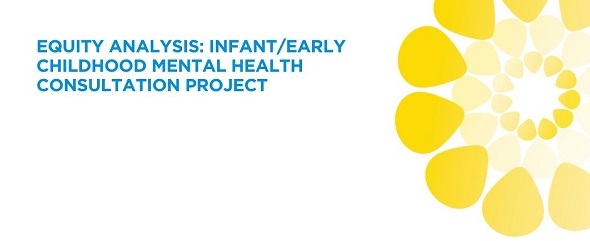IECAM Contributes to I/ECMH Equity Analysis
IECAM recently partnered with Erikson Institute and Children's Advocates for Change to produce a data report about the Infant/Early Childhood Mental Health (I/ECMH) consultants serving Illinois and the barriers to accessing their services.

The Illinois Early Childhood Asset Map (IECAM) recently partnered with Erikson Institute and Children's Advocates for Change to create The Equity Analysis: Infant/Early Childhood Mental Health Consultation Report. The report explores whether there is equitable access to infant/early childhood mental health (I/ECMH) consultation in the state and aims to help the early childhood workforce —and the consultants who support them—understand the barriers children and families may encounter when trying to access these services.
The report draws on data from the Illinois Network of Child Care consultant registry database, workforce research, and various sources examining factors affecting social-emotional development. Additionally, Erikson conducted an original online survey for consultants and held multiple focus groups with stakeholders.
IECAM's GIS manager, Bryan Preston, helped provide maps and data for the report. Looking at the data, Bryan learned that while staffing is a major concern, the infrastructure for these services exists throughout much of the state. "I hope the report will help generate more awareness of the support available to early childhood programs," he said.
Key takeaways of the report:
- There is a significant need to make people throughout the field more aware of the consultant registry.
- There does not appear to be enough consultants to adequately serve the early childhood workforce.
- A more detailed examination of data from all programs offering consultation is necessary to understand the number of professionals currently served and the number of consultations per year.
Recommendations include:
- Raising awareness about mental health consultation services among parents and the early childhood workforce.
- Promoting the benefits of reducing implicit bias.
- Streamlining and centralizing reporting for consultants.
- Increasing funding so early childhood staff can allocate time for consultations.
The report suggests that a promising next step would be for early childhood programs to systematically review and assess the existing data. This process could uncover additional insights and identify opportunities for improved data collection methods.